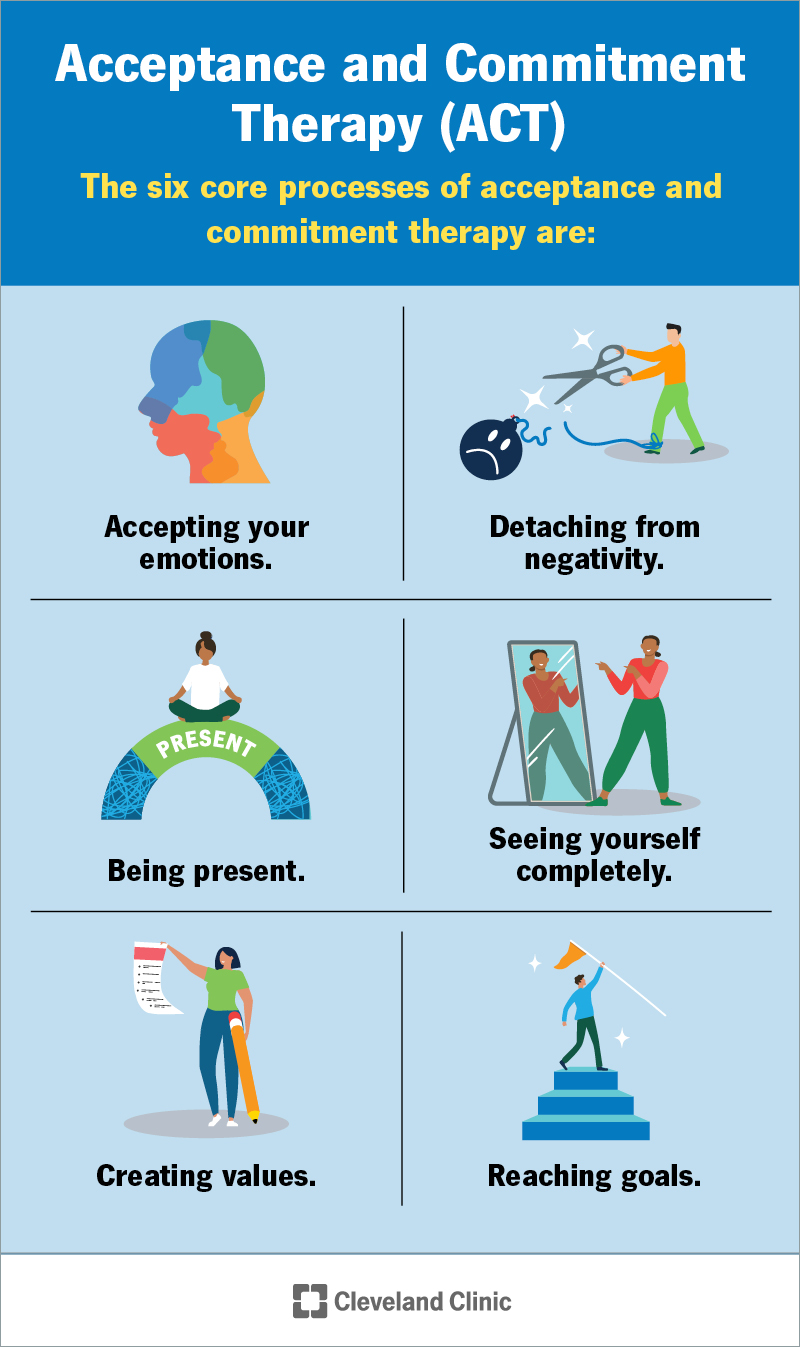Discovering Various Methods in Counselling for Anxiety Condition for Lasting Change
When taking on anxiety problems, it's necessary to check out a selection of therapy strategies. Each approach uses special understandings and tools to aid you handle your signs and symptoms efficiently. You might locate that integrating strategies can generate the very best outcomes. Recognizing the nuances of these approaches is essential to cultivating long-term modification. What if the appropriate combination could release a brand-new degree of emotional wellness for you?
Understanding Anxiety Problems: A Quick Introduction
Anxiety disorders, which impact numerous people worldwide, can considerably affect day-to-day live. You could experience overwhelming feelings of worry or fret that appear uncontrollable. These feelings can lead to physical symptoms like a racing heart, sweating, or perhaps lightheadedness. Usual sorts of anxiousness conditions consist of generalized stress and anxiety disorder, panic attack, and social anxiousness condition. Each has distinct signs, but they all share a propensity to disrupt your routine and relationships.Understanding the source of your anxiousness is essential. It might stem from genes, brain chemistry, or life experiences. Recognizing your triggers can aid you handle your responses better. It is very important to keep in mind that you're not alone in this struggle. Lots of people face similar obstacles, and seeking assistance is a solid step toward sensation better. By finding out about stress and anxiety conditions, you're already on the course to understanding and managing your problem a lot more effectively.
Cognitive-Behavioral Therapy: Testing Negative Thought Patterns

Identifying Negative Thought Triggers
Acknowledging the specific triggers behind your unfavorable ideas can be necessary in handling anxiousness when you experience moments of distress. Begin by taking note of scenarios that provoke sensations of worry or fear. Is it a congested space, an upcoming deadline, or a discussion with certain people? Jot down these instances in a journal. This will certainly help you determine patterns in your thinking. Likewise, notification physical feelings that accompany your unfavorable thoughts, like an auto racing heart or tightness in your breast. By pinpointing these triggers, you get insight right into what's fueling your stress and anxiety. Understanding these connections is the very first step in challenging those ideas and inevitably restoring control over your psychological responses.

Changing Ideas With Positives
Testing adverse idea patterns is a necessary action in changing your attitude and decreasing anxiety. You might usually discover yourself caught in cycles of self-doubt or catastrophic thinking. Instead of allowing these thoughts determine your feelings, practice replacing them with sensible options or positive affirmations. When you assume, "I can't manage this," shift it to, "I can manage obstacles one step at a time." This simple modification can considerably influence your mood. On a regular basis determining and responding to these negative thoughts helps develop a much healthier interior discussion. Keep in mind, it takes time and initiative, but consistently exercising this technique can lead to lasting change, encouraging you to encounter stress and anxiety with renewed confidence and strength
Structure Coping Strategies With Each Other
Changing negative thoughts is just the start of taking care of anxiety successfully. To create long lasting modification, you require to construct coping methods that equip you. Cognitive-Behavioral Therapy (CBT) assists you recognize and test those purposeless idea patterns. Together, you and your counselor can check out how these thoughts influence your feelings and behaviors.Start by developing functional techniques, like journaling or mindfulness exercises, that allow you to confront anxiety head-on. When you encounter your worries gradually, you'll learn to respond differently.

Mindfulness and Acceptance-Based Approaches: Growing Present-Moment Awareness
As you browse the complexities of anxiousness, integrating mindfulness and acceptance-based strategies can significantly boost your capacity to cultivate present-moment recognition. By concentrating on the present moment, you'll discover that you can observe your ideas and sensations without judgment. This method helps you acknowledge your stress and anxiety without really feeling overwhelmed by it.Engaging in mindfulness exercises, such as deep breathing, body scans, or guided reflections, enables you to ground on your own in your current experience. Acceptance-based methods motivate you to embrace your feelings instead of battle versus them. They shed their power over you.Incorporating these practices into your day-to-day routine can change how you react to anxiety when you accept your sensations. You'll develop strength and learn to navigate difficult scenarios with better ease. Ultimately, cultivating present-moment recognition lays the foundation for long lasting change, encouraging you to lead an extra meeting Licensed therapist for anxiety life.
Exposure Therapy: Confronting Fears Slowly
Exposure treatment helps you confront your fears in a steady way, making it less overwhelming. You'll find out methods to face anxiety-provoking situations detailed, while also constructing coping techniques to manage your reactions. This strategy equips you to take control and decrease anxiety with time.
Gradual Exposure Techniques
When facing anxiousness, gradually challenging your fears can be an effective way to gain back control. This technique, recognized as gradual exposure, involves slowly subjecting on your own to the situations or objects that activate your anxiousness. Beginning with much less challenging scenarios and slowly function your way up to more challenging ones. If you're worried of public talking, you could start by speaking in front of a mirror, after that progress to sharing thoughts with a friend, and at some point resolve a small group. Each step assists desensitize you to the worry, developing your self-confidence in time. Remember, it's crucial to rate on your own and commemorate tiny triumphes as you move with this procedure, strengthening your capability to handle anxiety properly.
Building Coping Strategies
Structure efficient coping techniques is necessary for handling stress and anxiety, particularly as you challenge your concerns progressively. One effective approach is direct exposure therapy, where you begin by encountering your anxieties in a regulated fashion. Start with much less frightening scenarios and slowly work your way approximately even more difficult scenarios. This gradual exposure assists desensitize you to anxiousness activates, making them less overwhelming.Incorporate leisure methods, such as deep breathing or mindfulness, to soothe your mind throughout exposure. Track your development, celebrating little triumphes in the process to increase your confidence. Bear in mind, it's alright to take your time; the goal isn't excellence but steady enhancement. By constructing these approaches, you'll empower on your own to navigate anxiety and welcome life a lot more fully.
Psychodynamic Therapy: Revealing Origin of Anxiousness
Psychodynamic therapy explores the subconscious mind, revealing the origin causes of your stress and anxiety - Counseling services for anxiety. By examining your ideas, feelings, and previous experiences, this method aids you uncover underlying problems and unsolved issues that might add to your present anxiety. You'll deal with a specialist to investigate youth experiences, connections, and psychological patterns that form your actions today.As you gain insight into these much deeper layers of your psyche, you'll start to recognize how past occasions influence your existing habits. This understanding can bring about catharsis, allowing you to process feelings you could have suppressed.Through the restorative connection, you can likewise identify protection devices that may have established in time, using a more clear course to alter. Eventually, psychodynamic therapy furnishes you with the tools to resolve your anxiety at its core, promoting long lasting makeover in your emotional well-being
All Natural and integrative Strategies: Incorporating Methods for Greater Efficiency
Incorporating different therapeutic strategies can improve your trip towards handling anxiety better. By incorporating elements from cognitive-behavioral treatment, mindfulness methods, and all natural strategies, you can develop a tailored technique that resolves your one-of-a-kind needs. As an example, you could make use of cognitive-behavioral techniques to test unfavorable idea patterns while incorporating mindfulness workouts to ground yourself in the here and now moment.Additionally, exploring all natural practices such as yoga or reflection can promote relaxation and decrease anxiety symptoms. This blend allows you to develop higher self-awareness and resilience.Experimenting with these diverse approaches can assist you uncover what resonates most with you. Remember, it has to do with locating a synergy that works, as opposed to staying with a solitary method. This integrative approach not just uses immediate relief however likewise promotes long-term skills for handling anxiousness, empowering you to reclaim control over your life.
The Function of Assistance Equipments: Structure Strength Via Connection
While it may appear that taking care of anxiety is a solitary trip, having a solid support group can play a necessary function in your strength. Surrounding yourself with compassionate friends, household, or support system develops a safe area where you can freely share your feelings and experiences. You advise on your own that you're not alone in this struggle.These connections use inspiration and can give practical coping approaches that have actually functioned for others when you connect with others. It's likewise an opportunity to gain perspective; good friends can aid you see scenarios in a different way, reducing feelings of isolation.Moreover, emotional support fosters a feeling of belonging, which can considerably ease anxiousness symptoms. By leaning on your support group, you can build strength and take on obstacles better. Keep in mind, connecting for aid signifies stamina, and it can make all the difference in your journey towards handling stress and anxiety.
Often Asked Questions
What Are the Usual Signs of Stress And Anxiety Conditions?
You may experience restlessness, fatigue, trouble focusing, irritation, muscle tension, and rest disruptions. Physical signs and symptoms can include rapid heart beat, sweating, and shivering. Identifying these indicators early can help you seek appropriate support and therapy.

For How Long Does Therapy Generally Last for Anxiety Problems?
Therapy for anxiousness problems normally lasts anywhere from a few weeks to numerous months. It really relies on your individual demands, progress, and the methods your therapist makes use of to assist you handle your anxiety efficiently.
Can Medicine Be Made Use Of Together With Treatment for Anxiety?
Yes, medicine can absolutely be utilized along with treatment for anxiousness. Combining both techniques usually enhances therapy efficiency, assisting you take care of signs and symptoms while discovering underlying concerns through therapy. Constantly consult your medical care supplier for tailored advice.
Exist Self-Help Approaches for Managing Stress And Anxiety?
Yes, there are numerous self-help methods for taking care of anxiety. You can exercise mindfulness, involve in regular exercise, maintain a balanced diet, develop a regular, and utilize deep breathing strategies to help in reducing anxiety symptoms efficiently.
How Do I Know if I Need Expert Help for Stress And Anxiety?
You need to take into consideration looking for specialist assistance for anxiety if it disrupts every day life, causes significant distress, or if self-help methods aren't working. Trust your reactions; reaching out can lead to better coping abilities and support. Typical kinds of anxiousness conditions include generalized anxiety problem, panic condition, and social anxiety disorder. When you come across moments of distress, recognizing the certain triggers behind your unfavorable thoughts can be vital in taking care of stress and anxiety. Replacing negative ideas is only the start of managing anxiousness efficiently. By analyzing your thoughts, sensations, and previous experiences, this technique helps you discover underlying conflicts and unresolved problems that may add to your current stress and anxiety. It's additionally a chance to get perspective; close friends can help you see circumstances in a different way, lowering feelings of isolation (Counseling services for anxiety).Moreover, psychological assistance fosters a feeling of belonging, which can significantly relieve anxiety signs